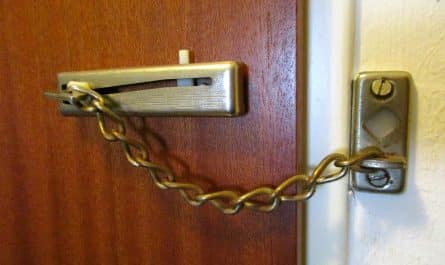Are you planning to be away from home for an extended period, for vacation, a stay abroad or for professional reasons? It is essential to check that your home insurance offers adequate protection in the event of prolonged absence. In this article, we will explain the main clauses to know, as well as the different options for adapting your coverage.
Clauses related to inhabitation in home insurance contracts
Most home insurance contracts include specific clauses concerning inhabitation, that is to say the period during which the accommodation is unoccupied by its owner or its usual occupants. These clauses aim to specify the conditions under which the insurer guarantees compensation in the event of a loss occurring during this period of inhabitation. It is therefore essential to check whether your home insurance contract provides the necessary guarantee in the event of occupancy of the premises.
The period of inhabitation: a limit to take into account
In many home insurance contracts, a period of inhabitation is mentioned. This is the number of consecutive days during which the accommodation can be unoccupied without affecting the guarantee. This period generally varies between 30 and 90 days, depending on the insurance companies and the formulas offered. If your absence exceeds this period, your insurer may apply guarantee restrictions or refuse compensation in the event of a loss.
Losses affected by inhabitation clauses
When your home insurance contract mentions specific clauses related to inhabitation, they generally concern several types of loss:
- The flight: As the risks of burglary increase in the event of prolonged absence, certain contracts provide for a limitation or exclusion of guarantee for this type of loss during the period of inhabitation.
- Water damage: Water leaks and other incidents can cause significant damage if no one is present to remedy them quickly. Here again, some home insurance policies limit their coverage in the event of inhabitation beyond the stipulated period.
- Natural disasters: Storms, floods, forest fires… Unoccupied housing is often more vulnerable to climatic risks, which can justify guarantee restrictions during unoccupied housing.
Adapt your home insurance coverage in the event of prolonged absence
Knowing that inhabitation clauses can limit or exclude your protection in the event of prolonged absence, it is important to consider different options to adapt your coverage according to your needs:
1. Inform your insurer of your prolonged absence
Before you leave, inform your insurance company of the duration and dates of your absence. This will allow your advisor to review your contract and advise you of any limitations or exclusions in effect. A simple prior declaration can sometimes be enough to maintain the guarantee during inhabitation.
2. Take out a specific warranty extension
If your current contract does not sufficiently cover the risks linked to inhabitation, it is possible to take out a specific warranty extension for prolonged absences. This option, offered by certain insurance companies, increases the authorized period of inhabitation and/or strengthens protection against certain disasters (theft, water damage, etc.).
3. Choose a home insurance contract without limitation of inhabitation
To avoid any unpleasant surprises, you can also choose a home insurance contract that does not include a specific clause related to inhabitation. These offers, generally more expensive, offer a constant and complete protection, whatever the duration of your absence.
4. Use a trusted person to monitor your home
To reduce the risks associated with homelessness and reassure your insurer, you can ask a trusted person (family, friend, neighbor, etc.) to visit your home regularly during your absence. This occasional presence will make it possible to quickly detect possible problems and limit damage in the event of a disaster.
In summary
To ensure optimal protection for your home in the event of prolonged absence, it is necessary to check the inhabitation clauses in your home insurance contract and consider solutions adapted to your needs. Contact your insurance company, compare offers and don’t hesitate to call on a trusted person to watch your home: these precautions will allow you to leave with peace of mind.







